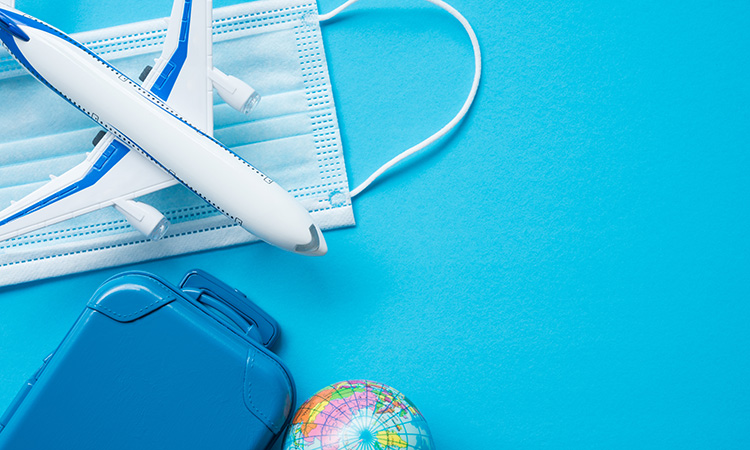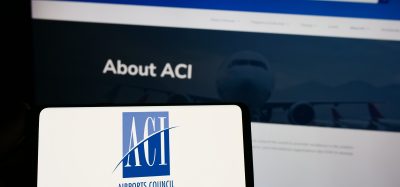Japan, Chinese Taipei and Hong Kong to ease travel restrictions
- Like
- Digg
- Del
- Tumblr
- VKontakte
- Buffer
- Love This
- Odnoklassniki
- Meneame
- Blogger
- Amazon
- Yahoo Mail
- Gmail
- AOL
- Newsvine
- HackerNews
- Evernote
- MySpace
- Mail.ru
- Viadeo
- Line
- Comments
- Yummly
- SMS
- Viber
- Telegram
- Subscribe
- Skype
- Facebook Messenger
- Kakao
- LiveJournal
- Yammer
- Edgar
- Fintel
- Mix
- Instapaper
- Copy Link
Posted: 27 September 2022 | International Airport Review | No comments yet
Airports Council International Asia-Pacific has welcomed Japan, Hong Kong, and Chinese Taipei’s decisions to relax COVID-19-related restrictions on international travel.


Airports Council International Asia-Pacific (ACI Asia-Pacific), representing 617 airports, welcomes the decisions by Governments of Japan, Hong Kong, and Chinese Taipei to relax COVID-19-related restrictions on international travel.
ACI Asia-Pacific has proactively engaged with governments and stakeholders, calling for global harmonisation of travel as well as withdrawal of in-bound travel curbs to facilitate seamless recovery of the aviation industry in the region.
This is a significant decision that will not only restore freedom of travel but also provide much-needed impetus for the recovery of the aviation industry. The restriction decision comes as a massive boost to the aviation industry at a time when Asia-Pacific risks losing its position as the world’s biggest civil aviation market for 2022 owing to prolonged restrictions in some countries in the region.
Welcoming the latest decisions by governments, Stefano Baronci, Director General, ACI Asia-Pacific said: “Our continuous dialogue with national authorities has finally paid off. ACI Asia-Pacific and its 617 airports welcome the decisions by the Governments of Japan, Hong Kong and Chinese Taipei for taking significant steps to relax COVID-19-related restrictions on international travel. This will not only restore freedom of travel but also provide the impetus needed for the recovery of the aviation industry.”
Japan had maintained strict border measures among major economies since the outbreak of the pandemic, having effectively blocked entry to visitors for two years until it began a gradual reopening in June.
Chinese Taipei also announced its plan to remove inbound quarantine for international arrivals by 13 October 2022. Previously, arrivals were required to quarantine in hotels for three days followed by four days of self-monitoring.
According to the latest guidelines by the Hong Kong Government, all international arrivals will be able to return home or to accommodation of their choice but will have to self-monitor for three days after entering the Chinese special administrative hub.
Calling for more actions from the Hong Kong Government, Stefano added: “We expect Hong Kong government to do away with existing restrictions of three-day to avoid further dampening of the economy. Owing to the prolonged restrictions on in-bound travel, Hong Kong has lost its position as the busiest airport for international traffic in Asia. Immediate actions are required to revitalise the economy.”
“We hope to see more positive developments coming from China in relaxation of COVID-19 measures for international travel.”
Earlier this month (October 2022), ACI Asia-Pacific wrote a letter, co-signed by ACI World and World Travel & Tourism Council (WTTC), to the Prime Minister of Japan, urging the government to remove all restrictions and restore the travel privileges to enable smooth recovery of the industry in the region. This is in continuation to ACI Asia-Pacific’s earlier engagement with the government of Japan by providing them with a research sample on travel restrictions which revealed that curbs such as quarantine and testing were ineffective in mitigating the spread of COVID-19.
Related topics
Airside operations, COVID-19, Passenger experience and seamless travel, Passenger volumes
Related organisations
Airports Council International (ACI World), Airports Council International Asia-Pacific and Middle East (ACI APAC & ME), World Travel & Tourism Council (WTTC)


















